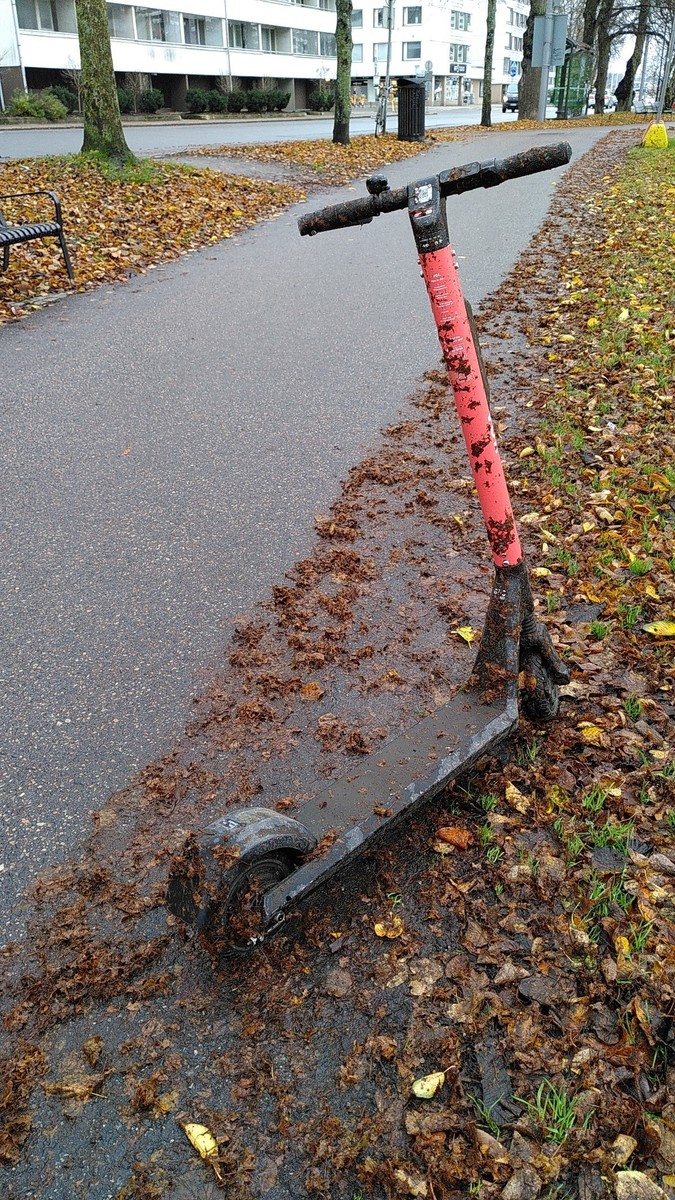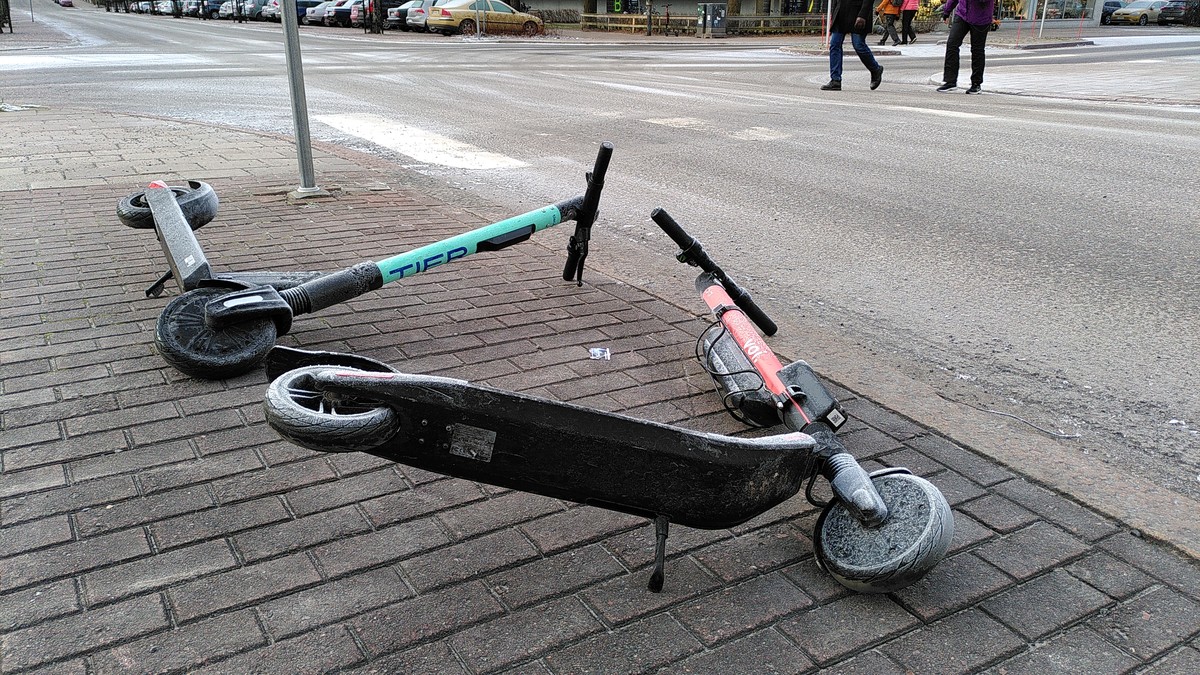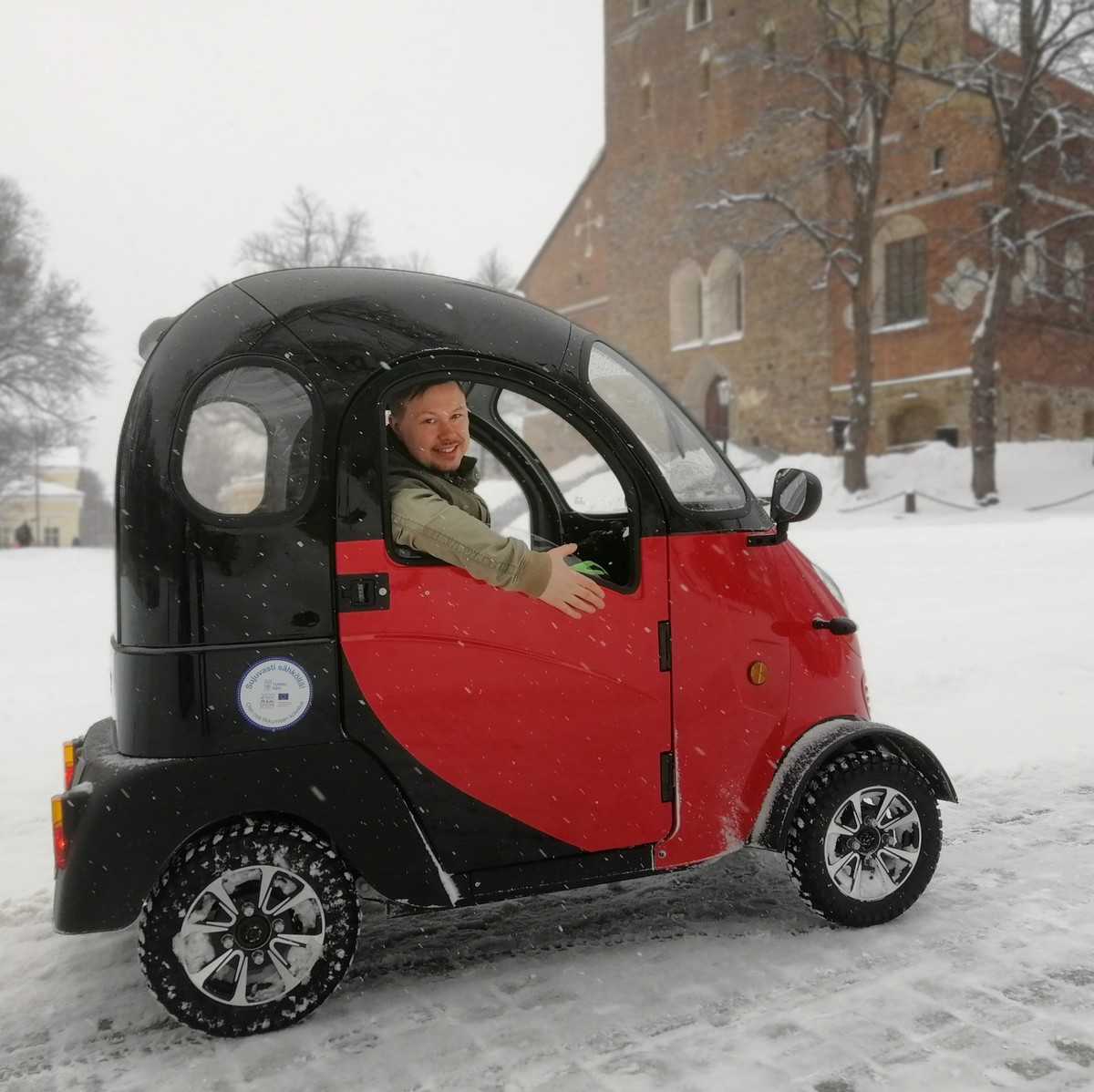Guest Feature: E-scooters in Finland!
As an urban citizen and engineering student, I am very much interested in the new forms of mobility and therefore very happy to have been part of the BSR Electric project as a student assistant at Turku University of Applied Sciences (TUAS).
Given this interesting writing opportunity, I instantly started thinking one special type of mobility that reached Finland in 2019: rental electric kick-scooters. It seems like most people have very strong opinions about the e-scooters, which now take their share of the public space in my hometown Turku but also in Tampere, Espoo, and Helsinki.
Swedish Voi and German Tier operate in all of the mentioned cities, whereas three operators started their Finnish operations only in the capital region: Lime (USA), Samocat (Russia) and Hoop (Finland). Out of the mentioned service providers, only Samocat uses physical docking stations, whereas the other brands provide a dockless service.
I tend to approach the phenomenon from sustainability points of view and consider certain practical issues related to urban space use & maintenance. Nordic winters most likely add some extra challenge to the mix.

Photographed in early autumn. Just imagine replacing those fallen autumn leaves with icy snow.
The attached picture from last autumn leads us to the issue: a parked e-scooter has received a leaf and dirt icing from a street sweeper vehicle’s brush. In this case, the device most likely wasn’t physically harmed much and the e-scooter had been nicely parked to the side of the combined pedestrian and bicycle way.
However, the situation could be much worse. Just consider the road maintenance device blowing ice and snow instead of those leaves. So, one questions I have in mind is the following:
How is it ensured that the streets, gateways, bus stops, sidewalks, and cycleways are clear of e-scooters when snowplows and other maintenance devices are called to clear the wintery streets of Turku, Tampere, Helsinki, and other Nordic cities?
Thanks to the milder than average winter the true snow challenge still lies ahead of those service providers who have stated that they do their best to keep the e-scooters available and running also during the Finnish winter. Out of the five service providers, only Hoop has announced that they will take all of their e-scooters off the wintry streets as a precaution to the potential dangers and challenges caused by the snowy and icy weather conditions.
When the winter at some point eventually hits in, the e-scooters – and their users – will indeed most likely face some serious challenges. In order to get some idea of what might happen, one can, for instance, read Swedish media or our engineering student team’s short report on experiences from test-drives of 8 different light e-mobility devices on snowy and icy roads of Turku. Those LEVs faced a true test of fire because during the test period a bit less than a year ago a true blizzard hit Finland and we got plenty of snow even in Turku. This report can be found here - ahokas-et-al-2019-levs-in-winter-conditions.
In the case of a tested e-scooter, the Turku University of Applied Sciences engineering students concluded that the tested device was rather a safety risk than suitable for wintry driving conditions. Therefore, the second question in my mind is the following: How well the service providers manage to maintain the availability and safe usability of their fleets during Nordic winter?

Frosty e-scooters resting off-duty, perhaps dreaming of a nice fluffy bed of snow. Or perhaps rather not.
As a future environmental engineer, I cannot help but to wonder also questions related to the “greenness” of this new type of e-mobility service: What is the environmental life cycle “cost” of one such rental e-scooter in a Nordic city like Turku or Stockholm? How do the e-scooter service providers manage their waste issues? After all, each e-scooter carries a battery and other technology and materials, which should be properly recycled after the e-scooter reaches the end of its operating life.
So many intriguing questions... But I’m afraid I don’t have the time and resources to study all of them very deeply. However, I’m happy to announce that I’m currently studying one of the mentioned questions in more depth in the form of a bachelor's thesis. And who knows, perhaps some other students will also pick some of those questions, too, because the topic indeed opens numerous avenues of research within different fields of study.
Dear readers, this year marks my graduation and the end of BSR electric project. Thank you for the ride so far! In the future, I look forward to continuing working within e-mobility or some other interesting technical approach to tackling climate change.
Safe rides, see you around!
PS. Do you have dockless rental e-scooters in your city? Are you aware of e-scooter related challenges or solutions to them? If so, please don’t hesitate to contact me, all input to my research would be highly appreciated!
Text & photos: Eetu Simpanen

Eetu Simpanen
eetu.simpanen@turkuamk.fi
Engineering student (energy & environmental technology), Student Assistant
Turku University of Applied Sciences
Update on Use Case 2 in Turku, Finland
Turku University of Applied Sciences is currently producing a final report on the experiences gained during the project on the usability of LEVs in various city logistical functions. The report will address the feasibility of widespread electrification of inner-city logistics in Turku, addressing not only technological issues but also perspectives on the drivers and barriers related to individual and organizational attitudes of employees. The report will be published in Spring 2020.

Annika Kunnasvirta
Project Manager
Turku University of Applied Sciences
Faculty of Technology, Environment and Business
Joukahaisenkatu 3, 20520 Turku, Finland
Tel. +358-(0)40-3550932
annika.kunnasvirta@turkuamk.fi


